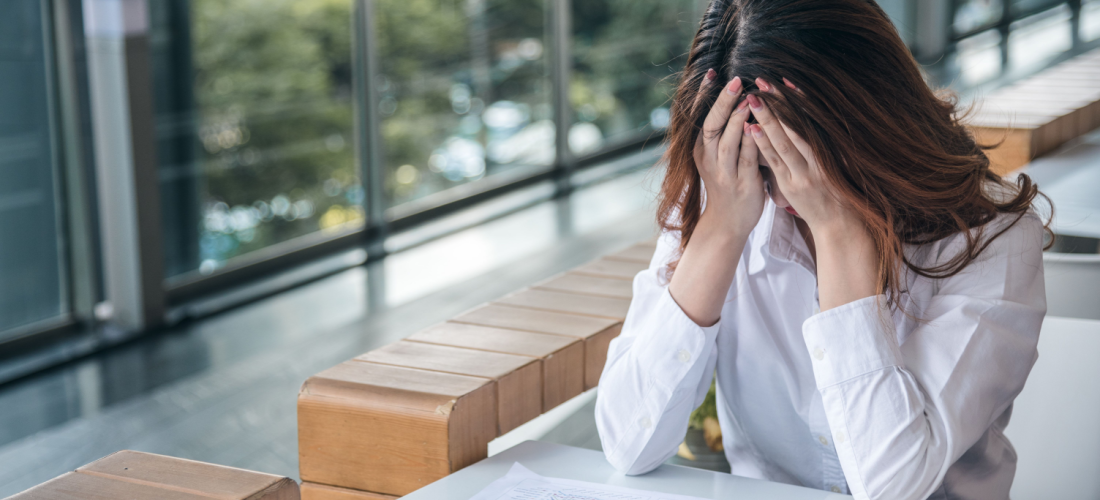Explore research-backed techniques through counselling for anxiety disorder programs
Explore research-backed techniques through counselling for anxiety disorder programs
Blog Article
Discovering Different Techniques in Coaching for Anxiousness Condition for Long Lasting Modification
When dealing with stress and anxiety conditions, it's vital to explore a variety of therapy approaches. Each approach offers distinct understandings and tools to assist you manage your signs successfully. You could locate that incorporating strategies can generate the finest outcomes. Comprehending the nuances of these techniques is crucial to cultivating long-term adjustment. Suppose the ideal combination could release a new level of emotional well-being for you?
Recognizing Anxiety Problems: A Quick Review
Anxiousness problems, which impact millions of individuals worldwide, can greatly influence day-to-day live. You may experience overwhelming sensations of concern or worry that appear unmanageable. These feelings can bring about physical signs like a racing heart, sweating, or also lightheadedness. Common kinds of stress and anxiety disorders consist of generalized anxiousness condition, panic disorder, and social anxiousness disorder. Each has one-of-a-kind indications, but they all share a tendency to interrupt your regular and relationships.Understanding the root triggers of your anxiousness is vital. It may originate from genetics, mind chemistry, or life experiences. Recognizing your triggers can assist you handle your actions better. It is essential to keep in mind that you're not the only one in this struggle. Lots of people encounter similar challenges, and seeking aid is a strong action towards sensation better. By discovering anxiety conditions, you're already on the path to understanding and managing your condition better.
Cognitive-Behavioral Treatment: Challenging Unfavorable Idea Patterns
In Cognitive-Behavioral Therapy, you'll start by recognizing the unfavorable idea causes that add to your anxiousness. When you identify these thoughts, you'll deal with replacing them with even more positive options. With each other, you'll construct efficient coping approaches to help handle your stress and anxiety in day-to-day scenarios.
Identifying Negative Thought Triggers

When you come across minutes of distress, identifying the details triggers behind your unfavorable thoughts can be important in handling stress and anxiety. Begin by focusing on circumstances that provoke sensations of fear or worry. Is it a crowded room, a future target date, or a discussion with specific people? Take down these circumstances in a journal. This will certainly assist you identify patterns in your reasoning. Notification physical experiences that accompany your unfavorable ideas, like a racing heart or rigidity in your breast. By identifying these triggers, you gain insight into what's fueling your anxiousness. Understanding these links is the very first step in testing those thoughts and eventually restoring control over your emotional feedbacks.
Replacing Ideas With Positives
Testing unfavorable idea patterns is a vital action in transforming your mindset and minimizing anxiety. You may usually find on your own entraped in cycles of self-doubt or disastrous reasoning. Instead of letting these ideas determine your sensations, practice replacing them with favorable affirmations or realistic options. As an example, when you assume, "I can't manage this," change it to, "I can manage difficulties one action at once." This basic change can significantly affect your mood. Consistently identifying and countering these unfavorable ideas aids create a much healthier interior dialogue. Bear in mind, it takes time and effort, but regularly exercising this strategy can bring about lasting change, empowering you to deal with stress and anxiety with renewed self-confidence and durability.
Structure Coping Approaches Together
Replacing negative ideas is just the start of taking care of anxiousness effectively. To produce enduring modification, you require to develop coping approaches that encourage you. Cognitive-Behavioral Treatment (CBT) aids you recognize and test those unhelpful thought patterns. With each other, you and your therapist can check out just how these thoughts impact your sensations and behaviors.Start by creating sensible strategies, like journaling or mindfulness workouts, that permit you to face stress and anxiety head-on. When you face your worries slowly, you'll learn to react in a different way.

Mindfulness and Acceptance-Based Approaches: Growing Present-Moment Awareness
As you browse the complexities of stress and anxiety, incorporating mindfulness and acceptance-based methods can considerably boost your ability to grow present-moment awareness. By concentrating on the right here and currently, you'll find that you can observe your thoughts and sensations without judgment (Counseling services for anxiety). This practice assists you recognize your stress and anxiety without really feeling overwhelmed by it.Engaging in mindfulness exercises, such as deep breathing, body scans, or assisted reflections, enables you to ground yourself in your present experience. Acceptance-based techniques urge you to embrace your emotions as opposed to fight versus them. When you accept your feelings, they shed their power over you.Incorporating these techniques into your daily routine can change just how you respond to anxiety. You'll establish strength and learn to navigate demanding situations with greater simplicity. Inevitably, growing present-moment recognition lays the structure for lasting change, equipping you to lead a much more meeting life
Direct Exposure Therapy: Challenging Worries Gradually
Direct exposure therapy aids you challenge your anxieties in a progressive way, making it less overwhelming. You'll learn methods to encounter anxiety-provoking circumstances detailed, while additionally constructing coping strategies to handle your responses. This technique equips you to take control and minimize anxiousness gradually.
Steady Exposure Techniques

When dealing with anxiety, progressively confronting your anxieties can be a powerful way to reclaim control. This method, referred to as progressive exposure, includes slowly revealing yourself to the scenarios or items that trigger your anxiousness. Start with much less intimidating circumstances and slowly work your means as much as even more challenging ones. If you're afraid of public speaking, you could start by speaking in front of a mirror, then proceed to sharing thoughts with a good friend, and eventually deal with a tiny team. Each step assists desensitize you to the anxiety, building your self-confidence with time. Remember, it's crucial to speed yourself and celebrate tiny triumphes as you relocate through this procedure, strengthening your capability to manage anxiety properly.
Structure Coping Strategies
Building efficient coping approaches is important for handling anxiety, specifically as you confront your worries gradually - Counseling services for anxiety. One effective method is direct exposure treatment, where you start by facing your anxieties in a controlled way. Begin with much less daunting circumstances and gradually function your way up to more difficult circumstances. This gradual exposure helps desensitize you to stress and anxiety sets off, making them less overwhelming.Incorporate relaxation methods, such as deep breathing or mindfulness, to calm your mind during exposure. Track your progression, commemorating little success along the road to increase your confidence. Remember, it's okay to take your time; the goal isn't perfection yet steady renovation. By constructing these methods, you'll equip yourself to navigate anxiousness and accept life more totally
Psychodynamic Therapy: Uncovering Origin Causes of Anxiety
Psychodynamic treatment discovers the unconscious mind, exposing the source of your anxiety. By examining your thoughts, feelings, and previous experiences, this strategy assists you discover underlying conflicts and unresolved issues that might add to your present anxiety. You'll function with a specialist to check out childhood years experiences, partnerships, and psychological patterns that form your responses today.As you obtain understanding into these deeper layers of your subconscious, you'll start to identify just how past events affect your present behavior. This understanding can bring about catharsis, enabling you to process feelings you may have suppressed.Through the restorative connection, you can likewise identify defense reaction that might have developed over time, offering a clearer course to change. Eventually, psychodynamic treatment equips you with the tools to resolve your stress and anxiety at its core, advertising lasting improvement in your emotional wellness.
Integrative and All Natural Techniques: Incorporating Techniques for Greater Efficiency
Incorporating different healing techniques can improve your trip towards managing stress and anxiety more successfully. By incorporating elements from cognitive-behavioral therapy, mindfulness methods, and all natural approaches, you can produce a tailored strategy that addresses your distinct requirements. You may utilize cognitive-behavioral methods to challenge unfavorable thought patterns while integrating mindfulness exercises to ground yourself in the present moment.Additionally, checking out all natural techniques such as yoga exercise or meditation can promote leisure and lower anxiousness signs and symptoms. This mix permits you to establish higher self-awareness and resilience.Experimenting with these diverse methods can help you uncover what reverberates most with you. Keep in mind, it's regarding discovering a synergy that functions, instead of staying with a single method. This integrative technique not only supplies instant relief but also cultivates long-lasting skills for handling stress and anxiety, empowering you to redeem control over your life.
The Duty of Support Solutions: Building Strength With Connection
While it might appear that taking care of stress and anxiety is a singular trip, having a strong support group can play a vital function in your resilience. Bordering yourself with empathetic pals, family, or support system creates a safe room where you can freely share your experiences and sensations. When you connect with others, you advise yourself that you're not the only one in this struggle.These partnerships provide support and can offer useful coping strategies that have actually functioned for others. It's additionally weblink a chance to get perspective; close friends can assist you see scenarios differently, minimizing sensations of isolation.Moreover, emotional support cultivates a feeling of belonging, which can significantly ease anxiety signs and symptoms. By leaning on your support system, you can build durability and take on obstacles better. Remember, connecting for aid suggests strength, and it can make all the difference in your journey towards taking care of anxiousness.
Frequently Asked Questions
What Are the Typical Signs And Symptoms of Anxiousness Disorders?
You may experience uneasyness, exhaustion, trouble focusing, irritability, muscle tension, and sleep disturbances. Physical signs can consist of quick heartbeat, sweating, and trembling. Acknowledging these indications early can aid you seek proper assistance and treatment.
How Much Time Does Treatment Typically Last for Anxiety Disorders?
Therapy for anxiousness Homepage disorders commonly lasts anywhere from a few weeks to a number of months. It really depends upon your individual demands, progress, and the strategies your specialist utilizes to aid you handle your stress and anxiety properly.
Can Medication Be Used Together With Treatment for Anxiousness?
Yes, medicine can certainly be made use of along with therapy for stress and anxiety. Combining both approaches often boosts therapy efficiency, helping you manage signs and symptoms while checking out underlying problems through therapy (Counseling services for anxiety). Constantly consult your doctor for individualized suggestions
Are There Self-Help Strategies for Taking Care Of Anxiousness?
Yes, there are a number of self-help strategies for taking care of stress and anxiety. You can practice mindfulness, involve in normal exercise, keep a well balanced diet, develop a routine, and use deep breathing techniques to help in reducing anxiousness signs properly.
Exactly how Do I Know if I Required Professional Assistance for Anxiety?

Report this page